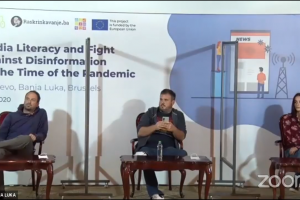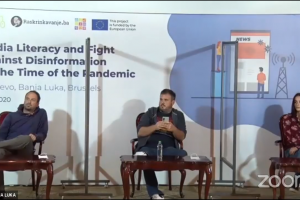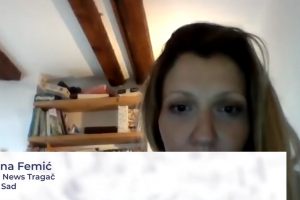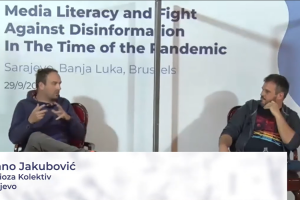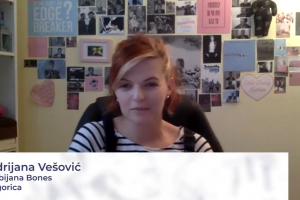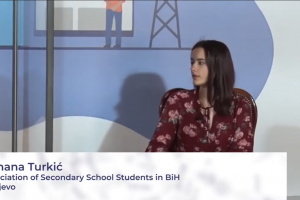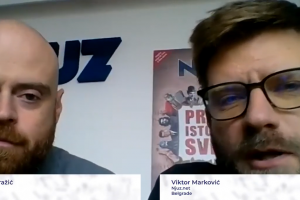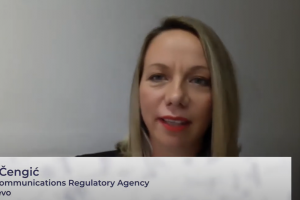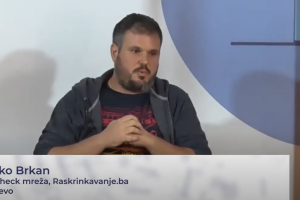Disinformation, social networks and youth
The so-called Banja Luka panel, with the topic “Media literacy and youth”, was the third and last panel that was held as a part of “Media Literacy and Fight Against Disinformation In The Time of Pandemic” Conference.
The conference was jointly organised by the Association “Why Not” (Zašto ne) on behalf of SEE Check network, Association of High School Students in BiH and the European Union, within the “Ne klikam u prazno” project funded by the EU with the aim of strengthening media literacy among youth. As part of the conference, three panel discussions were hosted from three cities (Brussels, Sarajevo and Banja Luka) on the subjects of media literacy, fact-checking and disinformation, with a focus on the pandemic in this sphere.
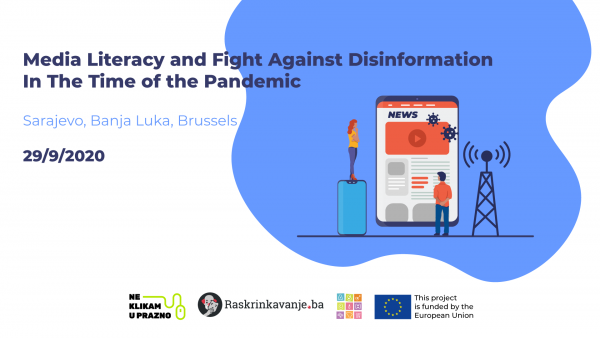 Panel participants were: Brano Jakubović from band Dubioza Kolektiv;, Marko Dražić and Viktor Marković – a duo behind the satirical website njuz.net; Tijana Femić – a journalist from Novi Sad, Serbia; Andrijana Vešković – an artist from Montenegro; Adnana Tukić – a member of Steering Board at Association of the Secondary School Students in Bosnia and Herzegovina; and Lea Čengić – an employee of Communications Regulatory Agency of Bosnia and Herzegovina and a researcher on media literacy. The panel moderator was Darko Brkan, president of CA “Why not”.
Panel participants were: Brano Jakubović from band Dubioza Kolektiv;, Marko Dražić and Viktor Marković – a duo behind the satirical website njuz.net; Tijana Femić – a journalist from Novi Sad, Serbia; Andrijana Vešković – an artist from Montenegro; Adnana Tukić – a member of Steering Board at Association of the Secondary School Students in Bosnia and Herzegovina; and Lea Čengić – an employee of Communications Regulatory Agency of Bosnia and Herzegovina and a researcher on media literacy. The panel moderator was Darko Brkan, president of CA “Why not”.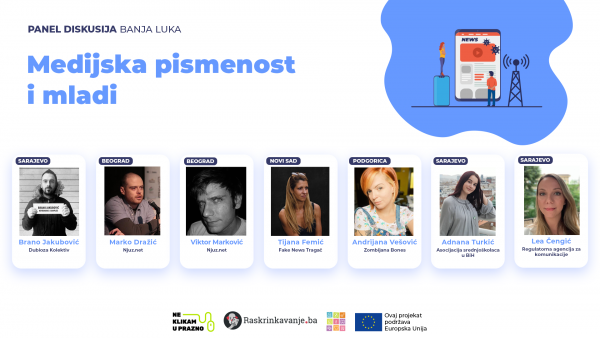
On this panel, we had the opportunity to learn about media habits among youth and children in Bosnia and Herzegovina, and how youth consume informative content online.
The younger generation was assumed to be much more skillful when it comes to using digital technology. Panelists highlighted, however, that this population generally lacks skills to detect and find a reputable source of information.
Andrijana Vešović, as an illustrator who uses social networks to promote her art, talked about her impressions when it comes to youth and their consumption of informative content on these platforms. She stressed that young people tend to read instant news without branching into deeper research about the information they have just read.
We also had the opportunity to hear experiences and impressions from Adnana Tukić, a young generation envoy on this panel. She concluded that high-school students currently struggle with the conception of media literacy mostly due to a lack of formal education which covers this and similar topics.
The stereotype that youth is ignorant should be avoided, Adnana pointed. On the contrary, she said, young people should be given space to tell and exchange their opinions. She also mentioned that youth should be given space to debate about the various topics, including media literacy and disinformation. As a positive example of a debating “forum” Adnana mentioned workshops that were held as a part of the project “Ne klikam u prazno”. High school students had the opportunity to exchange views and learn about disinformation on this occasion.
Topics of legal regulation and responsibility for the spread of disinformation was also discussed on this panel. Beyond the consensus of all panelists that media literacy has to become part of formal school curricula, panelists agreed on the idea that the education of the young population has to begin right now. It has to be done through channels they use the most and the ones they understand the best, including social networks, music, and humor.
